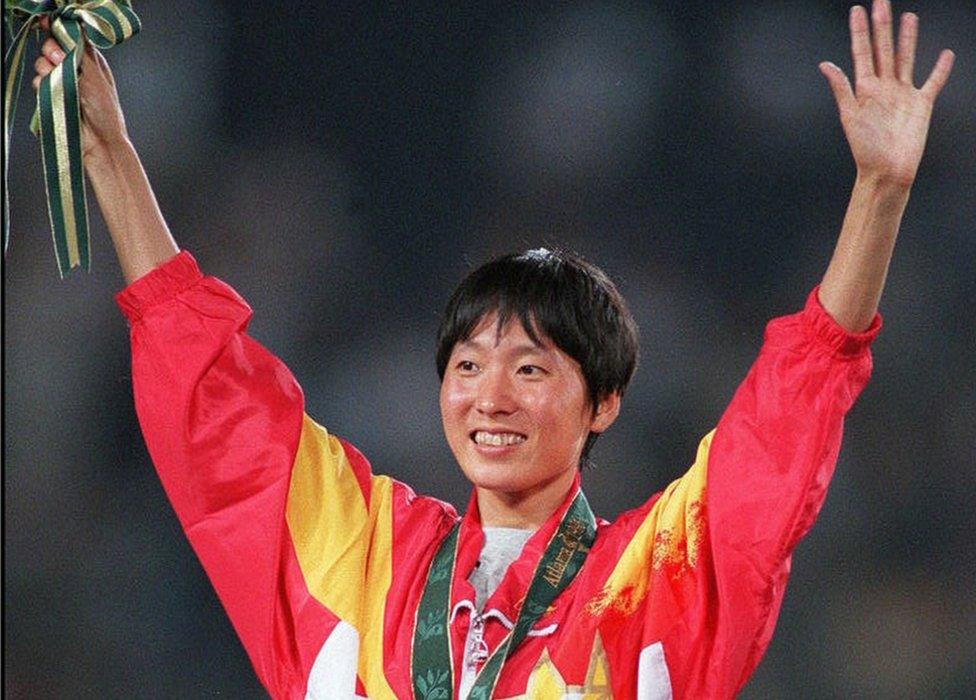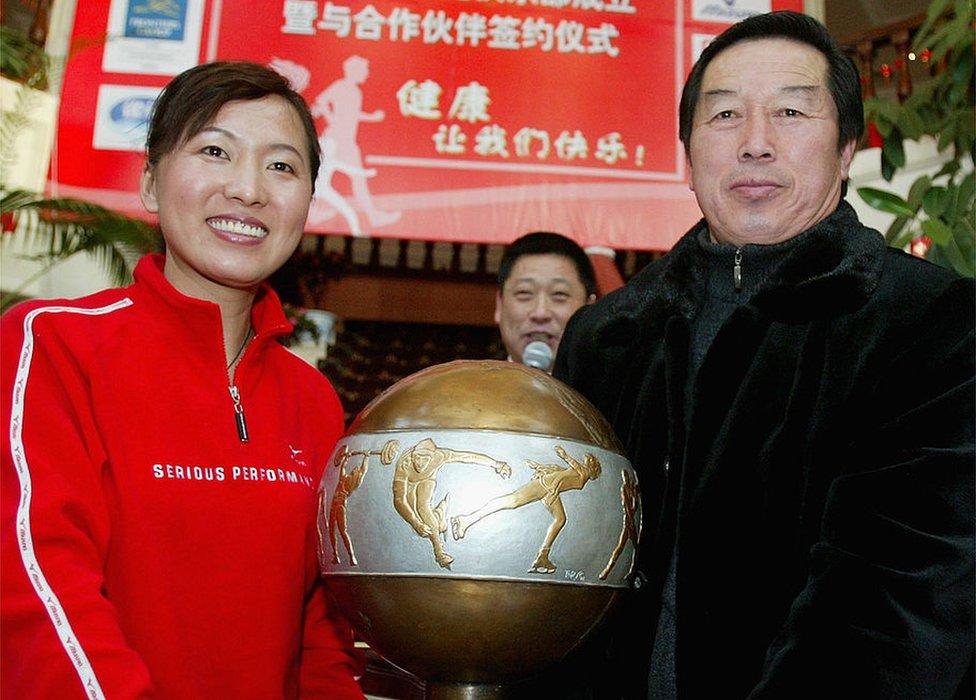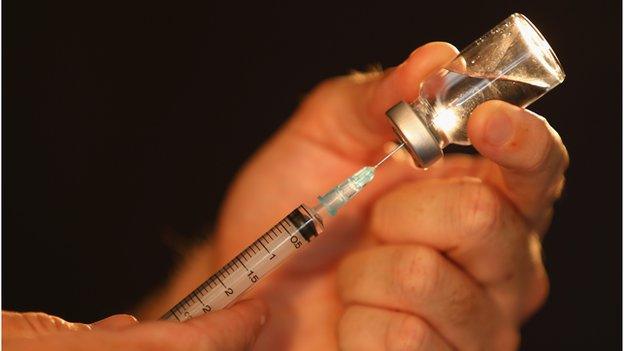IAAF investigates letter alleging doping in Chinese athletics
- Published

Wang Junxia, China's most famous long-distance runner, won the 5,000m race at the 1996 Olympics in Atlanta
The body that governs world athletics has said it is investigating a letter alleging historic state-backed doping in the sport in China.
The previously unseen letter was apparently written by Chinese Olympic medallist Wang Junxia in 1995, but only published in state media this week.
Wang still holds two world records.
The International Association of Athletics Federations (IAAF) said it was aware of the letter and is trying to confirm if it was genuine.
In a statement, it said: "The IAAF's first action must be to verify that the letter is genuine. In this respect, the IAAF has asked the Chinese Athletics Association to assist it in that process."
The IAAF said that under federation rules any athlete who admits to taking a prohibited substance prior to achieving a world record could be stripped of his or her title.
Wang broke the world record for 10,000m and 3,000m in 1993. No athlete is yet to come within 20 seconds of her time on the 10,000m. She also won the 5,000m at the 1996 Olympics, finishing second in the 10,000m.
The Chinese Athletics Association could not be reached for comment. Wang has not yet commented.

Wang Junxia (L) was part of a group of runners known as Ma's Army which trained under Ma Junren (right)
Chinese news outlet Tencent Sport published a series of reports on Wednesday on the doping allegations, which were then covered widely in state media.
The report quoted extensively from a chapter which was removed from a 1998 book on famed Chinese coach Ma Junren before publication.
It included the letter apparently from Wang, with nine other signatories, that alleged that the athletes had been forced to take drugs.
Ma, who has since retired, was known to be a very tough coach to his athletes, known as Ma's Army.
He has not commented on the allegations but has previously denied he gave athletes banned drugs.
The Chinese claim comes after the IAAF was hit by allegations that its officials were complicit in doping among Russian athletes in 2009.
Former IAAF chief Lamine Diack has been placed under criminal investigation.
His successor, Lord Sebastian Coe, has pledged to boost anti-doping measures and funding.
- Attribution
- Published12 January 2016
